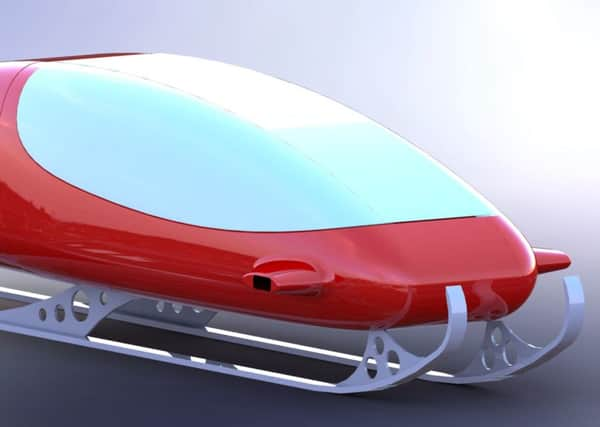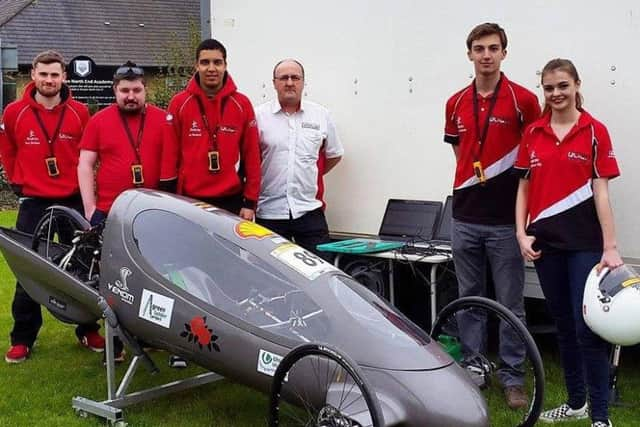Supersonic Santa cuts three hours off delivery time thanks to UCLan students


For thanks to a group of students at the University of Central Lancashire the Big Man will be flying in a faster and more fuel efficent sleigh- cutting his delivery time down by around three hours.
The engineers have given Santa’s Sleigh an aerodynamic re-design to make its annual trip more energy efficient and give the Reindeers time off.
Advertisement
Hide AdAdvertisement
Hide AdUsing designs based on their current car, the students have come up with a more energy efficient sleigh complete with a carbon fibre body, aluminium runners and a brand new aerodynamic shape.


And, they are confident their modifications will ease the pressure on the reindeers, and could even cut Father Christmas’ 510,000,000km journey time by three hours.
First year mechanical engineering student Reuben Taylor said: “We’ve been working on our own ultra- efficient vehicle for next year’s Shell Eco-marathon, when we realised how inefficient Santa’s sleigh actually is.”
Senior engineering lecturer Tony Broad added: “The first thing that stood out to us was the really high levels of drag.
Advertisement
Hide AdAdvertisement
Hide Ad“There’s a big area where turbulent air circles around the sleigh and recirculates behind it, and that makes it harder for him to move forward.


“Do you know how much Christmas Spirit he must waste each year?”
The Shell Eco-marathon is an annual competition in which teams of engineers from across the world push their creative engineering to the limit to see how far they can travel using the least amount of energy.
The UCLan team is planning to enter again next year - and hopefully break records- when the Eco-marathon comes to London in June 2016, staged in the UK for the first time in its 30 year history.
Advertisement
Hide AdAdvertisement
Hide AdThe current record, set using hydrogen, is equivalent to 15,000mpg in a petrol engine.
UCLan are considered the front runners this year, with their vehicle tipped to break all records.
It might have to as well, as Oxford are developing a driverless car, while Imperial reckon their vehicle will change the game in fuel efficiency.